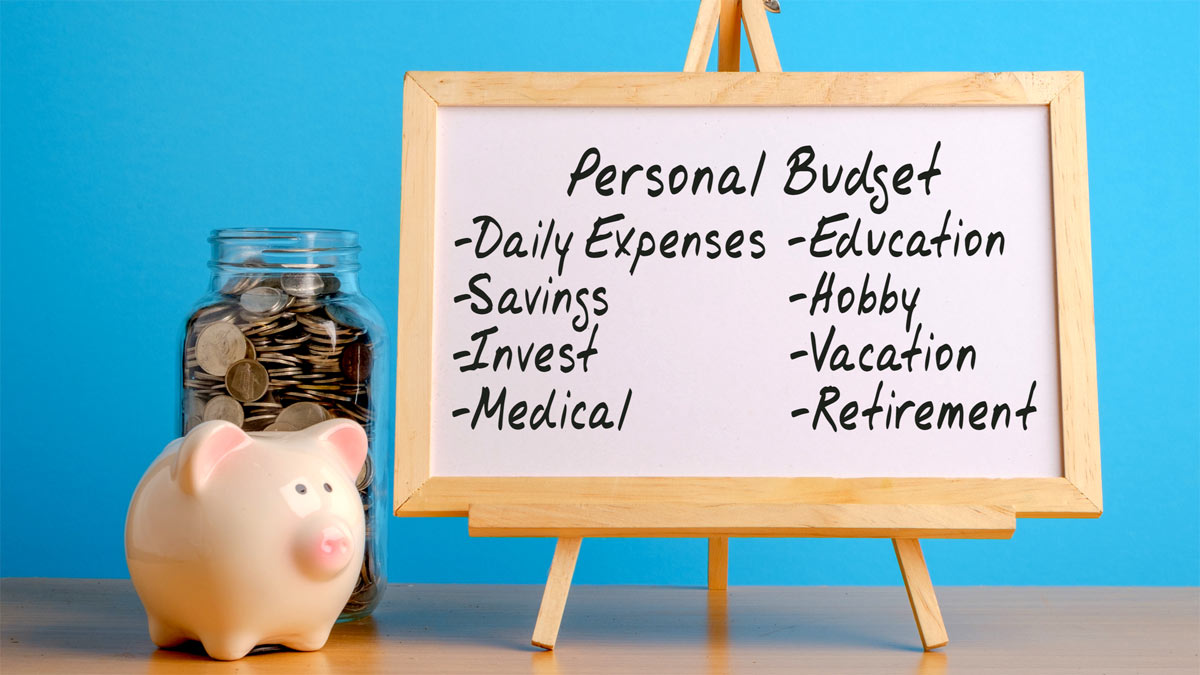Budgeting tips to help keep your budget on track
These budgeting tips will help you keep your money on track and in your wallet. They’re easy things to do and will help you set up a budget, keep to your budget or keep your money where it should be.
Let’s start with the simple budgeting tips:
Set up direct debits for all your regular payments including household bills including rent, council, water, energy, phone, etc. Usually you get a discount for paying by direct debit and you won’t have to worry about paying them on time.
Cut up your credit cards and store cards, vowing to pay them off. If necessary consider consolidating the credit card debt onto a new card with a low APR rate for balance transfers. That way, you’ll reduce the interest payments and only have one payment, making it easier to budget. Learn more about consolidating debt.
Keep track of everything you pay for one whole month to get clear picture of exactly how much you spend. It’s easy to forget to include those little bits and bobs or small impulse buys, but over the month they soon mount up. This ‘live and learn’ budgeting tips exercise will show you just how much.
If you want to buy something on impulse, ask yourself if you really need it. Don’t buy it there and then, instead, wait at least one night. If you still feel you need it tomorrow, then consider buying it. More often than not, you’ll find that you can do without.
If you’re a couple, create your budget based on one income. Use the second income for saving and investing in your future, rather than spending. This will protect you if you suddenly become ill, get pregnant or lose your job as you won’t need to rely on that second income.
Always make a list when you go to the supermarket. In fact, planning your meals on a weekly basis will stop you overspending as you’ll know exactly what you’ll need on your list.
Buy supermarket own brands or value brands for store cupboard staples. They’re often made by the big brands on behalf of supermarkets.
All the big, expensive brands pay for premium space on the supermarket shelves, right at your eye level. Look down on the supermarket shelves and you’ll find cheaper alternative products.
Use your coupons when you go to the supermarket, don’t leave them in the magazine! Often coupons can be redeemed against other products too, but ask the checkout staff first.
If you can’t remember what you spend in a day, always ask for a receipt. Collect them up and track what you spend at the end of each day. After a while, it will become a habit saying ‘can I receipt for that please?’ If the amount of paper doesn’t scare you, then the amount you spend will!
Start cooking from scratch. It’s much cheaper and the food will go further. It’ll take time and preparation, but the savings will soon stack up. Saving the take-aways for a treat is one of the best budgeting tips.
Budgeting for dummies: some basic tips
Just because you are reading an article about budgeting for dummies doesn’t mean the process is complicated! You might just as well be reading an article about budgeting for experts because as long as you follow a few simple rules it really is an easy straightforward process.
There is no need to get hung up about structure and detail, all you have to do is fill in a spreadsheet and you’re well on your way to preparing an effective budget. Of course, there are some basic principles you have to follow but as long as you have the correct outline you will soon be finished.
Having a budget is the first step on the path to financial freedom because once you can manage your money you can stop living from paycheque to paycheque and get on with enjoying life.
So without further ado let’s go over the basic points of budgeting for dummies.
Tips for budgeting for dummies
Essential articles
How to budget
Money saving tips
Top budgeting tips
Monthly budget worksheet
Budgeting is really the process of detailing how much money you have coming in and how much money you have going out. As long as you have more coming in than you have going out life will be easy. If it’s the other way round you’ll need to make some adjustments.
In the first place, it is easy to work out how much money you have coming in. Just add up your monthly salary, and any income from other sources that you might have, for example benefits, tax credits, shares or dividend income from other investments. For most people though salaries will make up the bulk if not all income.
Secondly, you need to work out how much you are spending every month. This is where things become a little tricky, but all you have to do is set yourself a task of writing down everything you purchase during a 30 day period. Starting at the beginning of the month, commit yourself to becoming obsessed with everything you spend, and get into the habit of writing it all down. Keep a pen and pad with you all the time and every time you use your wallet, make a note of it.
Once you have finished both of these tasks it is easy to transcribe the details into a spreadsheet and your budget is complete. But it’s a good idea to keep updating your budget too, so maintain your habit by keeping accurate records over a long period and soon it will become second nature.
If you find you are spending more than you earn, it is not the time to panic. Instead, it’s time to get your head out of the sand and take some action on your spending. By simply questioning your expenditure you’ll be surprised to find how easy it is to cut back on unnecessary items to bring yourself back into the black. You can get really creative here and you will find it surprisingly easy to discover what you can do without, especially when the payoff is extra cash in your pocket!
So when you think about it, budgeting for dummies is not something to be afraid of. It is simple common sense and once you make the leap you will never look back.


